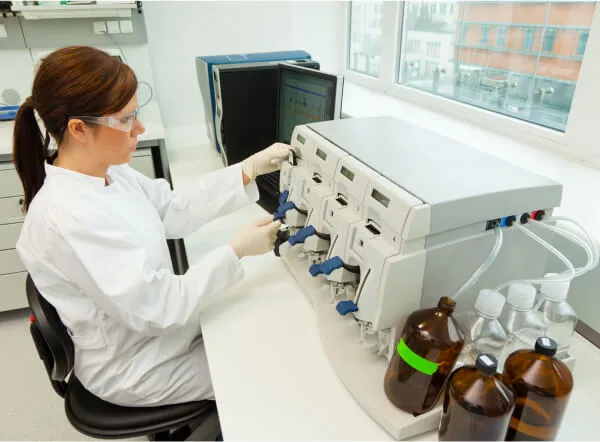Exercise Physiology

An exercise physiologist helps others to maintain and restore their health. If you would like to help others achieve a healthier lifestyle, read on for more information about professional duties, employment, salaries, education and certification for exercise physiologists.
<h2 id="section---IsExercisePhysiologyForMe">Is Exercise Physiology for Me?</h2>
<h3 id="section---CareerOverview">Career Overview</h3>
<p><a href="https://learn.org/multimedia/What_is_Exercise_Physiology_-_Video.html">Exercise physiology</a> is the study of how the human body's biological and biochemical processes react and adapt during exercise or physical activity, as well as the effects that disease or injury can have on the body's ability to move. Occupational objectives include the promotion of health and wellness while preventing illness and disability. As an <a href="https://learn.org/articles/What_is_an_Exercise_Physiologist.html">exercise physiologist</a>, you can use your knowledge of the field to help individuals maintain or improve their health, especially when being treated for chronic conditions, such as heart disease, cancer and diabetes. Additionally, you may work with athletes to enhance their training capabilities and performance.
</p>
<h3 id="section---CareerOptions">Career Options</h3>
<p>As an exercise physiologist, you may find work in a corporate or private fitness center, hospital, sports medicine clinic or physical therapy office, or in a community setting where you'd help people improve their level of fitness and quality of life. Professional responsibilities typically include assessing clients' conditions and designing exercise plans according to individual needs. Once trained in exercise physiology, you may also pursue a position as a strength and conditioning coach, employee fitness director or <a href="https://learn.org/articles/Personal_Trainer_Career_Definition_Employment_Outlook_and_Educational_Requirements.html">personal trainer</a>. Opportunities in cardiopulmonary rehabilitation and <a href="https://learn.org/articles/Sports_Physiology_Degree_Programs_and_Courses_Your_Questions_Answered.html">sports physiology</a> might also be available.
</p>
<h3 id="section---EmploymentAndSalaryInformation">Employment and Salary Information</h3>
<p>According to the U. S. Bureau of Labor Statistics (BLS), exercise physiologists earned a median annual salary of $44,770, as of May 2012. States with the highest levels of employment included Texas, North Carolina, Florida, California and Wisconsin. In that same month, California was also one of the top-paying states, along with New York, West Virginia, Oklahoma and Louisiana. Between 2012 and 2022, opportunities for exercise physiologists are expected to increase by an average rate of 9% nationwide, as reported by the BLS (<i>www.bls.gov</i>).
</p>
<h2 id="section---HowCanIWorkInExercisePhysiology">How Can I Work in Exercise Physiology?</h2>
<h3 id="section---UndergraduatePrograms">Undergraduate Programs</h3>
<p>Completion of a bachelor's degree program in exercise science or physiology is the minimum educational requirement for working in the field. These are fairly intensive courses of study that can serve as stepping stones to other professional titles, such as physical and occupational therapist, doctor, dentist or pharmacist. In a bachelor's program, you may expect to take classes in first aid and emergency care, biology, chemistry, math, anatomy and human nutrition.
</p>
<h3 id="section---GraduatePrograms">Graduate Programs</h3>
<p>In a <a href="https://learn.org/articles/Masters_in_Exercise_Physiology_Job_and_Salary_Questions_Answered.html">master's degree program in exercise physiology</a>, you'll study advanced human injuries, exercise, nutrition and weight gain. Training in cardiovascular physiology, electrocardiography and exercise testing may also be provided. Program features typically include a clinical or research-based thesis track, which can prepare you for immediate work in a medical or other setting, or entry into a <a href="https://learn.org/articles/PhD_in_Exercise_Physiology_Your_Questions_Answered.html">Doctor of Philosophy (Ph.D.) in Exercise Physiology</a>, Doctor of Medicine or another postgraduate program.
</p>
<h3 id="section---Certifications">Certifications</h3>
<p>A professional certification can serve as proof of competency in the field and may enhance your standing in the job market. Requirements for the Certified Physiologist credential, available from the American Society of Exercise Physiologists, include a master's degree in a relevant field of study and a passing score on the organization's exam (<i>www.asep.org</i>). If you're interested in helping patients who are under the care of a physician for cardiovascular, pulmonary and other diseases, you may want to pursue the Registered Clinical Exercise Physiologist certification (RCEP) from the American College of Sports Medicine (<i>www.acsm.org</i>). Most employers also require certification in cardiopulmonary resuscitation (CPR).
</p>
<h3 id="section---RequiredSkills">Required Skills</h3>
<p>It's important for you to have good communication and people skills, since you will be working with many different types of clients. You may deal with patients who have had heart attacks, strokes or other health issues. These patients are sometimes afraid to exercise, thus you must be motivating, upbeat and cheerful.</p>


.svg)